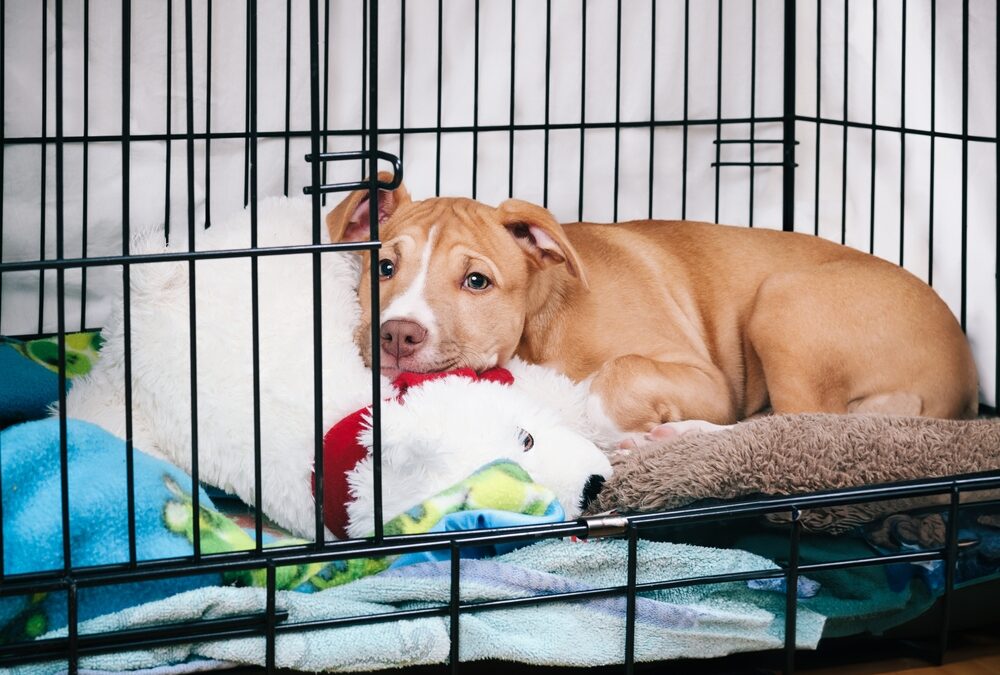When Your Dog is Suffering from Constipation or Diarrhea
Tummy troubles are never fun. They can be especially problematic for our dogs, who often can’t tell us when they’re experiencing tummy problems. In many cases, constipation or diarrhea will resolve on their own, but in some instances, they may require veterinary intervention. Antibiotics can disrupt your dog’s gut flora, producing all sorts of tummy issues. Whether your dog is suffering from constipation or diarrhea, here are ways you can help your dog find relief:
Your Dog is Suffering from Constipation Troubles
Dogs typically do not suffer from constipation. More often than not, owners think their dog is constipated when they actually have diarrhea. Due to the cramping, they feel they have to go, but no stool is produced. Before trying any at-home remedy for constipation, you should be 100 percent certain that it is the issue, as these remedies may make diarrhea worse.
If it’s been a while since your dog has had a regular bowel movement, they are straining to have a bowel movement, or producing small, dry stool, it might be time for an intervention. There are some at-home remedies you can try to get things moving, but if these remedies do not help, it’s essential to schedule a visit with your veterinarian. If your dog is constipated, try the following:
Increase Water Intake
Dehydration could be responsible for your dog’s constipation problems. Be sure your dog has easy access to plenty of clean water to encourage regular drinking. You might also want to start giving him a little bit of wet food to add a bit more hydration.
Add More Fiber-Rich Foods
Fiber is essential for a healthy bowel movement because it binds everything together internally, allowing the body to expel it. Try to give your pup some fiber-rich foods, such as canned pumpkin, berries, cooked carrots, or broccoli. These foods should always be plain and without any added salt or seasonings.
Lubricate
Coconut oil is a natural stool softener and laxative. Mix about one teaspoon into your dog’s food.
Help Restore Gut Balance
Probiotic supplements, Greek yogurt, and apple cider vinegar are some things you can add to help balance the gut and improve motility.
Take a Walk
Sometimes, your dog just needs a long walk to overcome constipation. Exercise can help get the digestive tract to start functioning as it should. If your dog still can’t go after a long walk, it might be time for veterinary intervention.
Turn to the Vet
If none of these tactics are effective, schedule a visit with your veterinarian. The vet can provide stool softeners or even perform an enema to help your constipated dog.
Your Dog is Suffering from Diarrhea
Diarrhea is no fun for anyone, and it can develop due to a variety of factors. Changing diet too quickly, gut inflammation, antibiotics, stress, and a pH imbalance are just some of the potential reasons for diarrhea, so it may be difficult to pinpoint the cause. If your dog is experiencing diarrhea that lasts longer than a day, is profuse and very runny, or contains blood, you should definitely contact your veterinarian. That first day, here are some methods that can help:
Focus on Hydration
Diarrhea can dehydrate your dog. Providing extra water can help keep your dog hydrated.
Use Bland Foods or Withhold Food
Sometimes your dog’s regular food can exacerbate an already upset stomach. Try feeding her bland foods like rice or boneless chicken for a few days to see if it helps alleviate her upset tummy. Or don’t feed them for up to 24 hours to give their digestive system a rest.
Visit the Veterinarian
If your dog is suffering from constipation or diarrhea that lasts more than 48 hours or has blood in the stool, it’s time to visit the veterinarian. The vet may prescribe medication, suggest a different kind of food, or recommend probiotics to help. They can also determine if there’s a larger health issue that’s causing the diarrhea.
The team at Union Lake Veterinary Hospital is here to help with all your pet’s health issues. From routine wellness visits to illness and surgery, we’re always here when you need us. To learn more or to schedule an appointment, please call (248) 363-1508.

